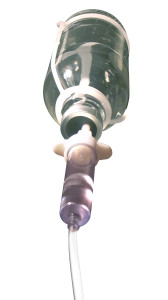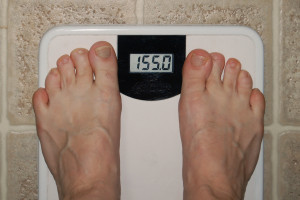se·vere·ly
I never intended for it to happen, but a significant portion of my naturopathic medical practice deals with sports medicine and treatment of athletes. The people who come to see me for their aches and pains can range from my young student athletes with Osgood-Schlatter (for a while I was seeing waves of volleyball and basketball players with very sore knees!) to the weekend warriors who’ve tweaked a few things trying to re-live the glory of days gone by and up to the Olympians and professional athletes. The common ground that all athletes have is that they want to push their bodies to the absolute limit and they come to look for natural (and definitely non-surgical) was to improve.
About eight years ago, an athlete came to my office explaining that he was a professional mixed-martial arts (MMA) fighter. Although he was dealing with numerous aches and pains, the main thing that he wanted help with was his weight cut. I knew immediately what he was talking about because years (and I mean MANY years) before that I had tried my hand at amateur wrestling, which is a sport notorious for the dangers of “cutting weight”. In a nutshell, MMA, wrestling, and other combat sports have athletes competing within a weight class. This makes sense from the perspective that it prevents having a larger opponent competing against a smaller opponent because, all other factors being equal, size is a significant advantage in combat sports. So, in order for a bout to take place, both fighters must weigh-in below a specified weight at a certain time (in MMA, this is typically the day before the match).
As a consequence of this, fighters will attempt to lose significant weight in the days (and hours) just prior to the weigh-in. Obviously, the only weight that one can lose in such a short period of time is from loss of body water – in other words, they dehydrate their bodies. Often times, athletes will be so dehydrated that their muscles are cramping and they can barely walk. Imagine what is happening to your other tissues and organs when the body is in such a state. You don’t have to be a doctor to know that this is EXTREMELY unhealthy. If you showed up in such a condition at the emergency room, you would most definitely be given intravenous (IV) rehydration. No surprise, then, that as a naturopathic doctor I have often administered IVs to fighters after their weigh-ins.
Only one problem – it’s against the rules.
That’s right. In a discussion with BC Athletic Commissioner Wayne Willows, he was very clear that IV rehydration is absolutely not allowed for athletes competing in events in the Province of British Columbia. This ban is also upheld by the US Anti-Doping Agency (USADA) and in fact, this is the same policy that will be implemented in October 2015 by the largest MMA organization in the world, the Ultimate Fighting Championship (better know as the UFC). The hope is that banning the practice of IV rehydration after weigh-ins will discourage athletes from cutting extreme amounts of weight to compete in lower weight classes.
Will it work? That is up for debate. On the one hand, people say that severe weight-cutting is dangerous and the practice needs to be discouraged. Others say that as long as a sport has weight classes, there will always be athletes trying to cut as much weight as possible and banning IV rehydration is going end up in athletes dying. The rules are the rules, though, and it is the athlete’s responsibility to abide by them and knowing the rules, I will absolutely inform the athlete that I will inform the fight promoter that my treatment will disqualify them from competition. As a naturopathic doctor, however, if you’re in a situation where your health is at risk because you’re dehydrated, I am going to recommend that you get an IV to rehydrate. There is no gray area there.




